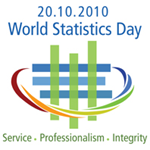Archive for the ‘Current affairs’
Why I wear a red poppy and not a white one
 There’s a group in PEI called the Island Peace Committee that has been distributing white poppies. The IPC says that their white poppies stand for non-violent conflict resolution. The implication seems to be that the red poppies somehow denote support for armed conflicts (i.e. wars) or even glorify them.
There’s a group in PEI called the Island Peace Committee that has been distributing white poppies. The IPC says that their white poppies stand for non-violent conflict resolution. The implication seems to be that the red poppies somehow denote support for armed conflicts (i.e. wars) or even glorify them.
This has, needless to say, upset a lot of people, including the Royal Canadian Legion. Generally speaking, the white poppies are being disrespectful to the brave men and women who have fought and died for their country. Aggravating this is the fact that the Island Peace Committee is distributing them at the same time the Legion’s Poppy Campaign is underway.
The red poppies are not glorifying war. They are symbols of “Remembrance, our visual pledge to never forget all those Canadians who have fallen in war and military operations”. Though they’ve been this symbol since 1921, their association with those who were killed in wars can be traced back to the Napoleonic Wars in the 1800s, more than 110 years before being adopted in Canada.
Personally, I wear a poppy to remember people I never knew but who died serving my country and family members like my great-uncle Fred who died in 1944. I also wear it as a sign of respect for those who have served and survived, such as my neighbour, Jack, who I have seen in the crowd shots in the television coverage of more than one Remembrance Day ceremony. Jack told me a couple of days ago that he has been asked to lay a wreath on behalf of our MP at the local Remembrance Day ceremony this Thursday afternoon, something he is proud of.
It’s important to understand that the red poppies are for those who died and not for the wars they died in. To suggest that they stand for anything else is incredibly disrespectful of their sacrifice.
Falling back in time
 This is the weekend that we fall back in time.
This is the weekend that we fall back in time.
No, I’m not talking about travelling through the Time Vortex, though that would be cool. Rather, I’m talking about changing back to Standard Time.
Twice a year most parts of North America change their clocks to chase the sun. Most recently, the dates this happens were changed to be the second Sunday in March and the first Sunday in November by the US Energy Policy Act of 2005. This year, it happens at 2am on Sunday, November 7th, so you can safely sleep in this Sunday.
The main reason being touted in support of daylight saving time is that it will result in an overall reduction in energy consumption. I have yet to see anything that says this has been achieved to any degree. David Prerau’s book Seize the Daylight: The Curious and Contentious Story of Daylight Saving Time (hardcover: 1560256559; softcover: 1560257962) tells the story of daylight saving time starting with when Benjamin Franklin mused about how many candles could be saved if the clocks were adjusted so that people were more in-sync with the sun up to just a few years ago. Worth a read if you have a chance.
If you’re a *NIX system administrator you probably updated your systems a couple of years ago, but in case you haven’t you probably should take a look at this. The zdump command should give you something like this:
[gordon@seedling]$ /usr/sbin/zdump -v /etc/localtime |grep 2010
/etc/localtime Sun Mar 14 06:59:59 2010 UTC = Sun Mar 14 01:59:59 2010 EST isdst=0 gmtoff=-18000
/etc/localtime Sun Mar 14 07:00:00 2010 UTC = Sun Mar 14 03:00:00 2010 EDT isdst=1 gmtoff=-14400
/etc/localtime Sun Nov 7 05:59:59 2010 UTC = Sun Nov 7 01:59:59 2010 EDT isdst=1 gmtoff=-14400
/etc/localtime Sun Nov 7 06:00:00 2010 UTC = Sun Nov 7 01:00:00 2010 EST isdst=0 gmtoff=-18000
Municipal election day
 It’s Municipal Election Day and the polls are open!
It’s Municipal Election Day and the polls are open!
As an excellent post over at The Squid Zone points out, of the various levels of government that you vote for, your municipal government probably has the greatest impact on your day to day life, yet the turnout for municpal elections are usually the lowest.
There are a number of campains to oust the existing mayor and council by voting for “anyone but the incumbent”. but they shouldn’t be interpreted as giving your vote to some random candidate. You should always be voting for the person you feel is most qualified to do the job. If this happens to be the incumbent, then you should probably give them your vote. However, if you’re determined not to vote for the incumbent, then pick the next most qualified candidate, but you should be able to answer the question “why am I not voting for the most qualified person?” if you opt to do this.
If you live in Ottawa, you can find out where to vote and who you can vote for on the City of Ottawa’s website.
It’s everyone’s civic responsibility to be engaged and vote. Remember, you don’t have the right to complain about what the municipal government is doing if you don’t vote.
Happy World Statistics Day!
 The United Nations General Assembly has proclaimed today to be World Statistics Day.
The United Nations General Assembly has proclaimed today to be World Statistics Day.
To quote from the UN Statistics Division’s website,
The celebration of the World Statistics Day will acknowledge the service provided by the global statistical system at national and international level, and hope to help strengthen the awareness and trust of the public in official statistics. It serves as an advocacy tool to further support the work of statisticians across different settings, cultures, and domains.
National statistics concern everyone to one degree or another. They contribute significantly to our knowledge of how well we’re doing as a country and they play a vital role in the creation of economic and social policies. The seemingly simple question "how large is a country’s labour force and what is its composition?", for example, can only be answered using data collected by a national statistical agency.
As one of the thousands of people around the world who work for the various national statistical agencies in the world, I’m proud of the role I play, however small it may be, in contributing to the better understanding of the world we live in.
Voting for “anyone but the incumbent”
I’ve noticed a number of “vote for anyone but the incumbent” campaigns in Ottawa. The premise is that if enough people don’t vote for the incumbent, they won’t win the election (usually true when there’s only a couple of candidates). The problem is that we have a first past the post system where someone can win the election even if they don’t have a majority of the votes — they only have to have more votes than anyone else.
A flawed system, at best, but that’s what we’re stuck with for the time being.
Let’s assume that the results of the election last time were:
- Joe Blow: 40%
- Jane Doe: 25%
- Jason Bourne: 25%
- James Bond: 10%
Joe Blow is running again, as are the others plus four additional candidates: Ernst Blofeld, Joe Q. Public, Maxwell Smart and Charles Carmichael.
Let’s assume that some people actually like Joe Blow’s track record and are going to vote for him for that reason. Let’s also assume that some people are going to vote for him simply because he is the incumbent and they recognize his name on the ballot. But some of the people who voted for Joe Blow last time are going to follow the “vote for anyone but the incumbent” school of thought and vote for someone else — 12% of voters, in fact. The remaining voters are going to continue voting for the person they believe in, who happens not to be Joe Blow, with the new guys are going to attracting some of the votes away from all of the candidates.
Election Day comes and goes and the results are:
- Joe Blow: 28%
- Jane Doe: 23%
- Jason Bourne: 12%
- James Bond: 17%
- Ernst Blofeld: 5%
- Joe Q. Public: 3%
- Maxwell Smart: 6%
- Charles Carmichael: 6%
This time, the incumbent, Joe Blow, wins again, but with 72% of the votes going for “anyone but the incumbent” instead of 60% of the votes like last time. More people don’t like him but he still won. Well, that strategy didn’t work, did it?
If you really do not like the incumbent, then find a more suitable candidate and vote for them. If, after considering all the candidates, the incumbent still tops your list, then you should probably vote for him. If you really don’t like any of the candidates, then perhaps you should have considered running for office.
If you do vote for some random person and that random person happens to win the election then you have no grounds for complaint when the random person jacks up your taxes, supports a new by-law requiring all homeowners to perform weekly sacrifices of baby bunnies and declares every Tuesday to be Walk-like-a-duck-or-else Day.
The organizers of the “vote for anyone but the incumbent” campaigns should have identified a slate of candidates that they support rather than telling people to toss their ballots to the wind. That way they might be more successful in their quest to see new faces on Council.
Happy 42 Day!
 Just a quick post to wish everyone a Happy 42 Day!
Just a quick post to wish everyone a Happy 42 Day!
As you probably know (you should know!), 42 is the answer to the great question of Life, the Universe and Everything. Today’s date, 10/10/10, looks suspiciously like the binary number 101010, which is 42 in base 10.
Check out Twitter for the #101010 and #42day hashtags to see what people are tweeting about. And, of course, check out the 42 Day website at fortytwoday.com.




 AKA Keeper of Maps, I'm a geocacher who lives in Ottawa, Canada.
AKA Keeper of Maps, I'm a geocacher who lives in Ottawa, Canada.
